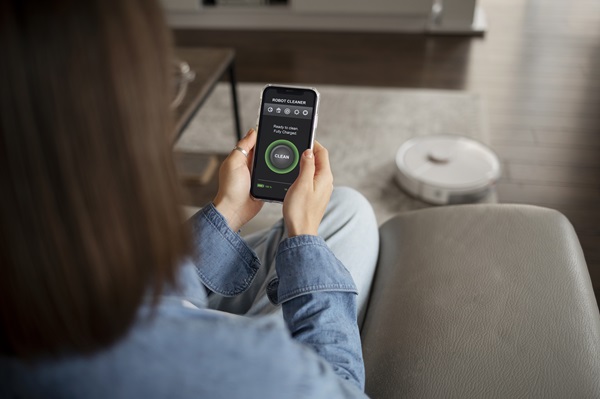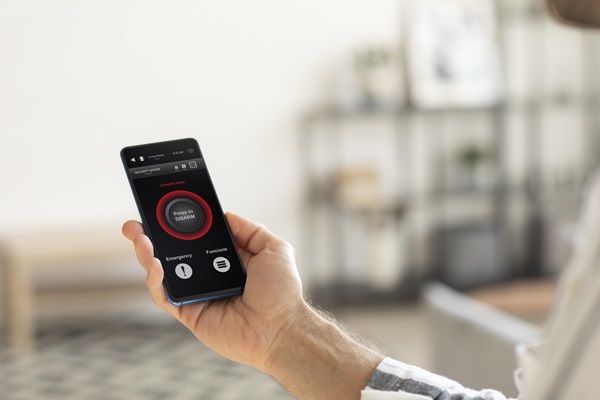Smart home technology is revolutionizing the way we live, offering a level of convenience and control that was once the stuff of science fiction. At the heart of this transformation lies the smart home hub. In this comprehensive guide, we’ll delve into smart home hubs guide, understanding what they are, how they work, and why they’ve become an integral part of the modern home.

Understanding Smart Home Hubs Guide
Smart home hubs serve as the central nervous system of your connected abode. They are the bridge that unites various smart devices, allowing them to communicate and work together seamlessly. Whether it’s turning off the lights with a voice command or adjusting your thermostat from your smartphone, the smart home hub is the orchestrator behind the scenes.
The Evolution of Smart Homes
The concept of a smart home is not new. It dates back to the early 20th century when visionary inventors like Nikola Tesla dreamed of interconnected homes. Fast forward to the 21st century, and we find ourselves in a world where these dreams are a reality. The evolution of smart homes has been marked by advancements in technology, the miniaturization of components, and the ever-growing ecosystem of smart devices.
The Basics of Smart Home Hubs
What Is a Smart Home Hub?
A smart home hub is a centralized device that acts as a communication hub for all your smart devices. It’s the middleman that allows your smartphone, voice assistant, or other control methods to interact with your smart lights, locks, cameras, and more.
How Smart Home Hubs Work
The magic of smart home hubs lies in their ability to speak multiple languages. They use various wireless communication protocols like Wi-Fi, Zigbee, and Z-Wave to connect with a wide range of devices. Through these connections, they relay your commands and create a cohesive smart home environment.
Benefits of Using a Smart Home Hub
Smart home hubs offer a multitude of benefits. They enhance interoperability among devices, improve security, and provide centralized control, making your daily life more convenient. Moreover, they can save you money in the long run by optimizing energy usage and automating routine tasks.
Types of Smart Home Hubs
Standalone Smart Home Hubs
Standalone hubs are dedicated devices with built-in processing power and memory. They are a self-contained solution for controlling your smart devices without the need for external services.
Voice-Activated Smart Home Hubs
These hubs, like Amazon Echo and Google Home, can be activated and controlled through voice commands. They have integrated virtual assistants like Alexa and Google Assistant, making them highly intuitive and user-friendly.
Home Assistant Software
Home assistant software, such as Home Assistant and openHAB, is a different breed. These solutions run on a computer or a Raspberry Pi and offer immense flexibility and customization options, making them a favorite among tech-savvy enthusiasts.
Compatible Devices and Ecosystems
Compatibility with Smart Devices
One of the crucial aspects to consider when choosing a smart home hub is device compatibility. Ensure that your hub supports the smart devices you own or plan to acquire. This will prevent compatibility headaches down the road.
Ecosystems and Integration
Smart home ecosystems, like Apple’s HomeKit or Samsung’s SmartThings, play a significant role in your smart home’s cohesiveness. These ecosystems ensure that all your devices can work together harmoniously.
Future-Proofing Your Smart Home
The smart home industry is rapidly evolving. Look for a hub that embraces future standards and technologies, so your investment remains relevant as the smart home landscape continues to shift.
Popular Smart Home Hub Brands
Google Home
Google’s smart home ecosystem is centered around the Google Home Hub. This hub integrates seamlessly with Google services and is known for its compatibility with a wide range of third-party devices.
Amazon Echo
Amazon’s Echo devices are synonymous with voice-controlled smart homes. Alexa, Amazon’s virtual assistant, is the brain behind Echo hubs, providing a user-friendly experience and wide device support.
Apple HomeKit
HomeKit is Apple’s smart home platform, known for its robust security features. It allows you to control your smart home devices through your Apple devices and Siri.
Samsung SmartThings
Samsung’s SmartThings is a versatile hub that connects to a variety of devices, making it a popular choice for those with a diverse range of smart gadgets.
Hubitat Elevation
Hubitat Elevation appeals to enthusiasts who want total control. It’s a local processing hub, which means your data stays within your home network, ensuring privacy and speed.

Setting Up Your Smart Home Hub
Choosing the Right Location
Selecting the ideal location for your hub is essential. It should be centrally positioned to ensure strong connectivity with your smart devices.
Initial Configuration
After unboxing your hub, the initial setup involves connecting it to your Wi-Fi network and configuring your preferences.
Connecting to Your Wi-Fi Network
Wi-Fi connectivity is crucial, as it’s the backbone of your smart home. A stable and fast Wi-Fi connection ensures that commands are executed promptly.
Pairing Smart Devices
To unleash the full potential of your smart home, you’ll need to pair your devices with your hub. This typically involves following simple pairing instructions provided by the device manufacturer.
Voice Control and Virtual Assistants
Voice Commands and Smart Home Control
Voice control is a hallmark feature of many smart home hubs. It allows you to interact with your devices using natural language, providing a hands-free and intuitive experience.
Integrating Virtual Assistants
Virtual assistants like Alexa, Google Assistant, and Siri can be integrated with your smart home hub, enhancing its capabilities and providing personalized responses.
Privacy and Security Concerns
With voice-activated hubs, privacy and data security are paramount. Be aware of the privacy policies of your chosen hub and always prioritize security.
Automating Your Home
Creating Scenes and Routines
Automation is where the true convenience of smart homes shines. You can create scenes and routines to automate repetitive tasks, like setting the lighting for movie night or waking up in the morning.
Scheduling Devices and Actions
Scheduling allows you to set specific times for your devices to turn on or off. It’s handy for energy-saving and security purposes.
Geofencing for Smart Automation
Geofencing uses your smartphone’s location to trigger actions when you arrive home or leave. It’s a powerful tool for automating your smart home based on your whereabouts.
Smart Home Hub Apps
Managing Your Smart Home from Your Smartphone
Most smart home hubs come with dedicated mobile apps that let you control your devices from your smartphone, even when you’re away from home.
Third-Party App Integration
Many hubs support third-party apps, expanding their functionality and making them even more versatile.
User-Friendly Interfaces
A user-friendly app interface is essential for a seamless user experience. It should be intuitive and provide easy access to all your smart devices and controls.
Security and Privacy
Protecting Your Smart Home
Ensuring the security of your smart home is paramount. Regularly update passwords, enable two-factor authentication, and apply security patches to your devices.
Data Privacy Concerns
Be mindful of the data your devices and hub collect. Read privacy policies and make informed choices about the information you’re comfortable sharing.
Securing Your Network
Your network is the backbone of your smart home. Implementing strong Wi-Fi encryption and firewalls will help safeguard your smart devices from external threats.
Troubleshooting and Common Issues
Diagnosing Connectivity Problems
Sometimes, smart devices can have connectivity issues. Knowing how to diagnose and resolve these problems is crucial for a smooth smart home experience.
Firmware Updates and Maintenance
Regularly update your hub’s firmware and the firmware of connected devices. These updates often include important security and performance enhancements.
Customer Support and Online Communities
If you run into problems you can’t solve on your own, don’t hesitate to reach out to customer support or tap into online communities for assistance from fellow smart home enthusiasts.
Expanding Your Smart Home
Adding New Devices
As your needs and preferences change, you can expand your smart home by adding new devices. Compatibility checks are essential to ensure smooth integration.
Compatibility Checks
Before purchasing new smart devices, verify that they are compatible with your existing hub. Compatibility issues can lead to frustration and wasted investments.
Exploring New Possibilities
The smart home landscape is ever-evolving. Don’t hesitate to explore new possibilities and experiment with different devices and automation scenarios to make the most of your smart home.

Smart Home Hub vs. Home Automation Systems
Understanding the Difference
While smart home hubs provide centralized control, home automation systems like Control4 offer a more comprehensive solution, often involving professional installation and customized experiences.
When to Choose a Hub
For most users, a smart home hub is a cost-effective choice. Home automation systems are typically chosen by those seeking more advanced and tailored solutions.
Advanced Automation Systems
Home automation systems offer features like whole-home audio, advanced security integrations, and custom programming, catering to those with sophisticated smart home needs.
Future Trends and Innovations
Artificial Intelligence and Machine Learning
Artificial intelligence and machine learning are driving the next wave of smart home innovation, enabling devices to learn and adapt to your preferences.
5G and IoT Integration
The rollout of 5G networks and the growth of the Internet of Things (IoT) are poised to further enhance the capabilities and speed of smart home devices.
Sustainable and Energy-Efficient Smart Homes
As environmental concerns grow, smart homes are focusing on sustainability, with energy-efficient devices and systems designed to reduce carbon footprints.
Cost and Budget Considerations
Upfront Costs
The cost of setting up a smart home hub can vary significantly depending on the hub’s features and the number of devices you plan to connect. Be prepared for initial expenses.
Ongoing Expenses
Consider ongoing costs such as device maintenance, energy bills, and subscription fees for premium features like cloud storage or remote access.
Cost-Effective Smart Home Strategies
To keep costs in check, look for deals on smart devices and consider open-source solutions that can reduce the need for paid subscriptions.
User Experiences and Testimonials
Real Stories from Smart Home Enthusiasts
Hearing from real users about their experiences can provide valuable insights and inspiration for your own smart home journey.
Insights from Satisfied Users
Satisfied users often have tips and tricks to share, making your smart home experience smoother and more enjoyable.
Regulatory and Legal Aspects
Data Protection Regulations
Be aware of data protection laws and regulations, as they can impact how your smart home devices collect, store, and use your data.
Compliance with Local Laws
Local laws and regulations may vary, so ensure your smart home setup complies with relevant standards in your region.
Liability and Insurance
Consider how your smart home may affect your homeowner’s insurance, and be aware of liability issues that may arise in the event of malfunctions or accidents.
Smart Home Hub and Real Estate
Smart Homes as an Attractive Feature
Smart homes can increase the desirability and value of your property, making it an attractive feature for potential buyers or renters.
Resale Value and Smart Home Hubs
A well-implemented smart home hub can positively impact the resale value of your home, creating a competitive edge in the real estate market.
Real Estate Market Trends
Stay informed about the latest trends in the real estate market regarding smart home features, as these can influence your property’s marketability.
Case Studies
Successful Implementations
Examining successful case studies can provide valuable lessons and ideas for how to optimize your smart home setup.
Learning from Real-Life Examples
Real-life examples showcase the practical applications and benefits of smart home hubs, helping you make informed decisions about your own setup.
Choosing the Right Smart Home Hub
Factors to Consider
When selecting a smart home hub, consider factors like device compatibility, your preferred control method, and your budget.
Making an Informed Decision
Gathering information, reading reviews, and seeking recommendations will help you make an informed decision about the right smart home hub for your needs.
Sustainability and Green Smart Homes
Energy Efficiency and Smart Hubs
Smart home hubs can play a role in energy efficiency by optimizing device usage and reducing wastage.
Reducing Environmental Footprint
Minimizing your environmental footprint is a growing concern, and smart homes offer tools and strategies to achieve this goal.
Smart Homes for a Sustainable Future
Smart homes have the potential to contribute to a more sustainable future by promoting energy conservation and responsible resource usage.
The Future of Smart Home Hubs
Predictions and Speculations
The future of smart home hubs promises even greater integration, automation, and interconnectivity among devices.
Continuous Advancements
Stay on the lookout for ongoing advancements and innovations in the world of smart home hubs, as they will continue to shape the way we live.
Conclusion
In summary, this comprehensive smart home hubs guide underscores their pivotal role in modern home automation, facilitating seamless connectivity and control of diverse devices. From foundational integration to future advancements in AI and sustainability, understanding smart home hubs is paramount for maximizing the benefits of smart living. Staying informed about emerging trends and innovations is essential for creating homes that are both convenient and sustainable, shaping the future of how we live.

